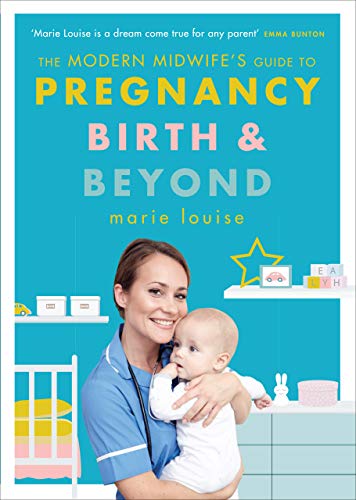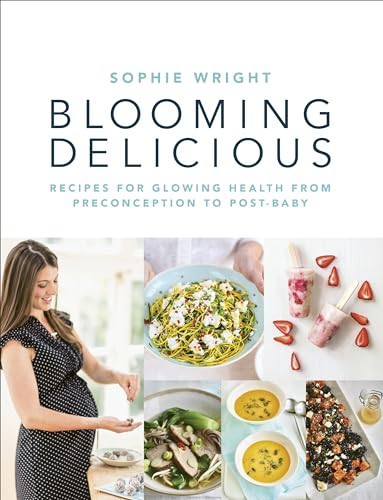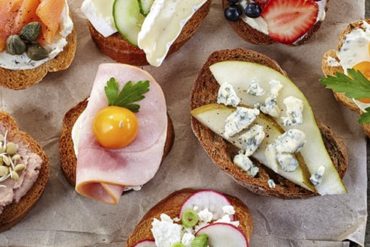There is a great deal of confusion as to what you can and cannot eat during pregnancy, so it is imperative you check with your doctor or health visitor.
Eat well
A healthy diet can help you to keep fit and sustain your energy levels during pregnancy, boosting your chances of delivering a healthy baby.
It is vital to include the following in your diet:
- Fresh fruit and veg, particularly dark green vegetables, which have lots of folic acid, and citrus fruits
- Carbohydrates, such as bread, grains, cereals, pasta and potatoes
- Milk and dairy products, such as yogurt, cheese and fromage frais
- Lean meat or fish which have lots of essential fatty acids
Research highlights that expectant mothers who consume fish at least once a week are not as likely to give birth prematurely. Oily fish includes mackerel, sardines, fresh tuna and trout. Oily fish is also considered to be great for children’s eyesight.
However, pregnant women are advised by experts to have no more than two portions of oily fish per week.
Do not eat swordfish, shark or marlin, and keep the amount of tuna you eat down to two tuna steaks per week (140g cooked tuna in total) as these fish contain high levels of mercury, potentially harmful to a baby's developing nervous system.
Maintain your hydration with frequent glasses of water or, if you prefer, diluted fruit or vegetable juice. This will also keep fatigue and headaches at bay and ensure effective working of the bladder and kidneys.
Can I be a vegetarian or vegan whilst pregnant?
If you follow a balanced diet while you are pregnant, you will consume all the nutrients you need. However, if your diet is not balanced, you may need to supplement it with additional vitamins, like B12, which are found in soya products as well as in supplements. Some pregnant women may need a vitamin D supplement also.
You need to ensure you get enough iron in your diet. Please find below a list of foods full of iron.
Which Foods are Iron-rich?
Most of us get our iron from a healthy diet. However, when you are pregnant, it is commonplace to experience an iron deficiency.
Iron-rich foods include:
- Thoroughly cooked meat
- Dark green vegetables such as spinach, broccoli, kale and watercress
- Nuts
- Pulses like lentils and chick peas
- Whole grains like wholemeal bread, cereals and brown rice
- Eggs
- Dried fruit
How to Eat Safely During Pregnancy
Thoroughly cook meat and wash fruit and veg prior to eating, to ensure that you do not get infected with toxoplasmosis, which can impact you and your baby.
Avoid soft cheeses like brie and camembert, as well as blue-veined cheeses such as stilton. All these cheeses are linked to listeria, which can cause premature birth as well as miscarriage. It is advisable to avoid paté for the same reason.
Ensure all ready-made meals you prepare are heated right-through, as you can get listeria from them otherwise.
Make sure the milk you drink is pasteurised or UHT milk, because harmful germs are destroyed in such milk.
Only have eggs if they are hard-boiled or scrambled, to avoid the risk of salmonella infection.
Ensure you do not eat liver or liver products while pregnant, because they have high levels of vitamin A, which can be harmful to the baby.
Preparing food
When preparing food, ensure that you keep any cats away from the vicinity as toxoplasmosis is present in cat feces. If you change cat litter trays, or do any gardening, make sure that you do so with gloves on.
What is Folic Acid?
Folic acid is a vitamin B. It is known to lower the risk of neural tube abnormalities in babies, that is, where spinal or brain development is incomplete. These defects include spina bifida and anencephaly.
It is very difficult for pregnant women to obtain the recommended amount of folic acid from just diet alone. It is recommended that pregnant women as well as those who wish to get pregnant take a 400mcg folic acid supplement up to the 12th week of pregnancy. It is possible to take the supplement thereafter, after consultation with your midwife or doctor with regard to the dosage.
Foods with folic acid include:
- Yogurt and milk
- Dark green vegetables
- Cereals, particularly wholegrain
- Bananas, grapefruit and oranges
- Pulses and beans
- Malt and yeast extracts (like drinks and spreads)
You can get folic acid supplements on prescription from your GP. They are also easily available from pharmacies as well as supermarkets.
How Much Caffeine Can I Have?
It is best to keep your intake down to a maximum of four cups of coffee per day. If possible, it is best to switch to non-caffeine choices of foods and drinks.
Can I Drink Alcohol or Smoking While Pregnant?
It is strongly recommended that women avoid drinking alcohol during pregnancy. However, if a pregnant woman finds it difficult not to drink, she should not drink for the first three months, and seriously limit her drinking thereafter. It is best to discuss this with a doctor or health visitor.
Constant, heavy drinking can be responsible for permanent foetal developmental problems and brain damage.
If you drink or smoke and want help, you should see your GP or midwife.
If you smoke, it is highly advisable to give it up during pregnancy. Smoking increases the carbon monoxide levels in your blood, which lowers the amount of oxygen going to your baby, impacting on its growth and rendering the baby more susceptible to infection. It can result in premature death and stillbirth.
Post-birth, smoking can increase the risk of sudden infant death syndrome (or cot death). It is highly advisable for your partner to stop smoking as well, and for you to avoid smoky atmospheres.
Any drugs, such as cannabis and ecstasy, are thoroughly risky during pregnancy because they go into the baby's bloodstream, not just yours. Drugs like cocaine and heroin can cause serious dependency problems in babies. Ask your midwife or doctor for help if you need it.
Infectious diseases are risky too. The majority of women in the UK are injected against rubella, so that is no longer such a big issue. However, keep your distance from those with chickenpox because it can lead to stillbirth and developmental problems.
Any employer has to legally change your job should your health be at risk due to working with poisonous chemicals or high risk procedures like x-rays.
Will I Gain Weight During Pregnancy?
It is vital to eat a healthy, well-balanced diet while pregnant. Losing weight is not advised during pregnancy unless you have had specific medical advice to the contrary. It is natural to gain weight while pregnant.











